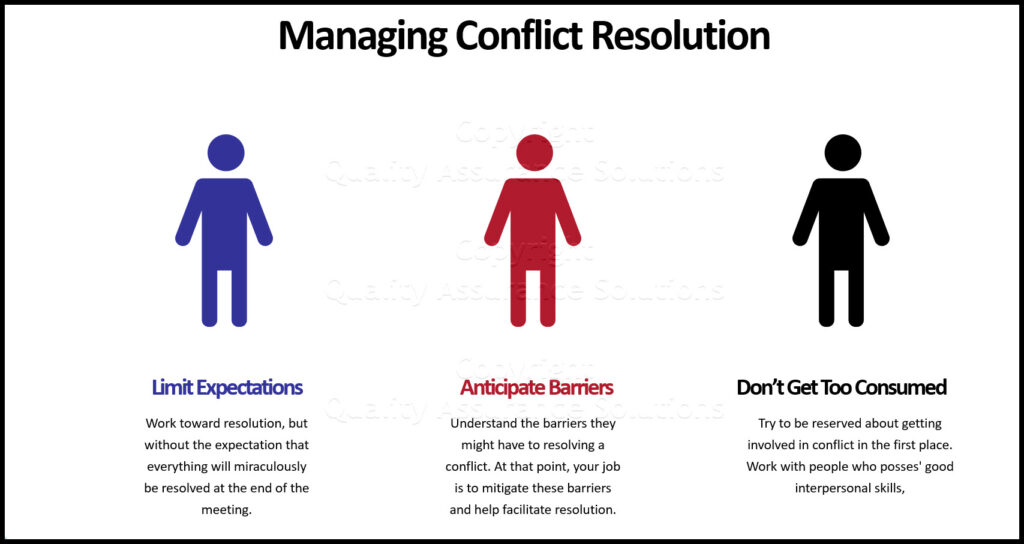Effective Conflict Resolution Techniques for Business Professionals
Conflict is a natural part of any workplace environment, arising from differing perspectives, priorities, and personalities. However, how conflicts are managed can significantly impact organizational morale, productivity, and overall success. Effective conflict resolution strategies empower business professionals to navigate disputes constructively, foster collaboration, and strengthen relationships within teams and across departments. Discover essential techniques to effectively manage conflicts in the workplace and promote a positive organizational culture.

1. Foster Open Communication
Open communication is fundamental to resolving conflicts proactively and preventing escalation. Encourage team members to express their thoughts, concerns, and viewpoints openly and respectfully. Create a culture where constructive feedback is welcomed, and individuals feel empowered to address conflicts as they arise. By fostering transparent communication channels, you promote understanding, clarify expectations, and mitigate misunderstandings before they escalate into larger issues.
2. Practice Active Listening
Active listening is a cornerstone of effective conflict resolution. Listen attentively to understand the underlying interests, emotions, and perspectives of all parties involved in the conflict. Demonstrate empathy by acknowledging feelings and validating concerns without interrupting or passing judgment. Through active listening, you build trust, demonstrate respect, and lay the foundation for collaborative problem-solving.
3. Identify and Understand Different Conflict Styles
Recognize that individuals may approach conflicts differently based on their personality traits and communication styles. Common conflict styles include avoidance, accommodation, competition, compromise, and collaboration. Understand your own preferred style and recognize the styles of others to adapt your approach accordingly. By understanding diverse conflict styles, you can tailor your conflict resolution strategy to promote constructive dialogue and achieve mutually beneficial outcomes.
4. Focus on Interests, Not Positions
Shift the focus of conflict resolution discussions from rigid positions to underlying interests and needs. Encourage parties to articulate their goals, concerns, and desired outcomes. Identify common ground and explore creative solutions that address the underlying interests of all parties involved. By emphasizing interests rather than positions, you foster collaboration, encourage flexible problem-solving, and increase the likelihood of reaching a satisfactory resolution.
5. Remain Calm and Manage Emotions
Effective conflict resolution requires maintaining composure and managing emotions, both personally and when interacting with others. Stay mindful of your emotions and adopt strategies such as deep breathing or taking a short break to regain perspective and clarity. Encourage parties in conflict to do the same to prevent escalation and promote rational decision-making. By managing emotions effectively, you create a conducive environment for constructive dialogue and resolution.
6. Seek Win-Win Solutions
Strive to achieve win-win solutions that satisfy the interests of all parties involved in the conflict. Collaborate with stakeholders to brainstorm creative alternatives and explore compromises that address core concerns while respecting individual priorities. Encourage flexibility and willingness to explore options outside of initial preferences to reach agreements that promote mutual satisfaction and long-term relationship building.
7. Use Mediation or Facilitation Techniques
In complex or escalated conflicts, consider utilizing mediation or facilitation techniques facilitated by a neutral third party. A mediator or facilitator can help facilitate communication, clarify misunderstandings, and guide parties towards consensus. Mediation encourages active listening, promotes empathy, and supports the exploration of mutually acceptable solutions in a structured and impartial manner. Leverage mediation as a proactive approach to resolving conflicts and restoring productive working relationships.
8. Implement Conflict Resolution Training
Invest in conflict resolution training programs for employees at all levels of the organization. Equip individuals with the skills and tools needed to identify, manage, and resolve conflicts effectively. Provide training on communication techniques, negotiation strategies, and emotional intelligence to empower employees to navigate conflicts with confidence and professionalism. By investing in conflict resolution training, you foster a culture of proactive conflict management and promote a harmonious workplace environment.
9. Encourage Forgiveness and Letting Go
After resolving a conflict, encourage parties involved to practice forgiveness and let go of lingering resentment or negativity. Emphasize the importance of learning from the conflict experience, focusing on solutions rather than dwelling on past grievances. Foster a culture where mistakes are viewed as opportunities for growth, and individuals are encouraged to move forward with a renewed commitment to collaboration and mutual respect.
10. Evaluate and Learn from Conflict Experiences
Reflect on conflict resolution processes and outcomes to identify lessons learned and areas for improvement. Encourage feedback from participants to assess the effectiveness of strategies implemented and gather insights for future conflict resolution efforts. Continuously refine your conflict resolution approach based on feedback, evolving dynamics, and organizational goals to enhance overall effectiveness and promote a culture of continuous improvement.
Embrace Effective Conflict Resolution Strategies
By integrating these effective conflict resolution strategies into your professional toolkit, you can transform conflicts into opportunities for growth, collaboration, and strengthened relationships within your organization. Embrace proactive communication, active listening, and collaborative problem-solving to navigate conflicts with confidence and integrity. Together, let’s cultivate a workplace culture where conflicts are managed constructively, and individuals thrive in a supportive and harmonious environment.


